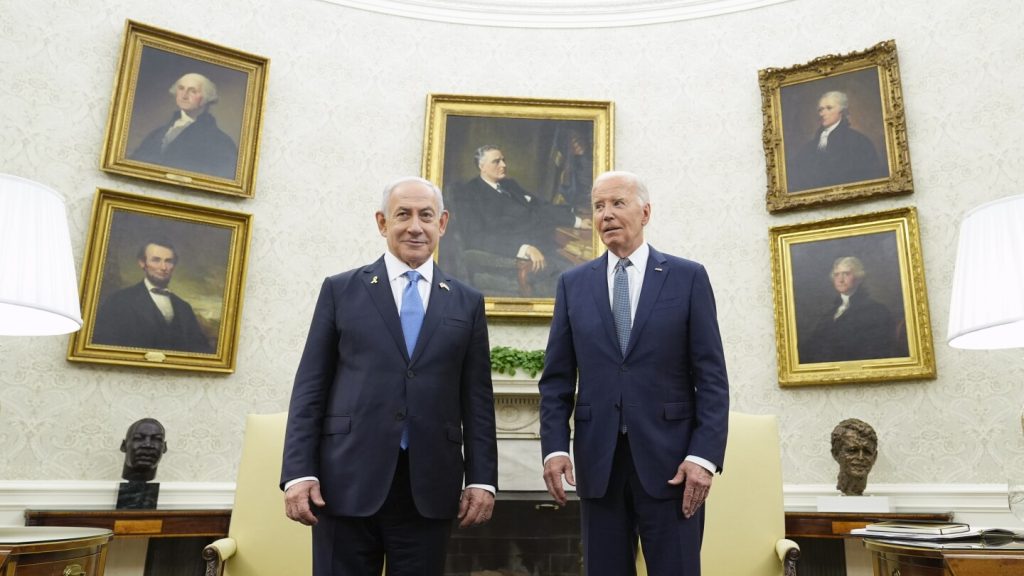President Joe Biden spoke with Israeli Prime Minister Benjamin Netanyahu on Wednesday in an effort to push for a bridging proposal that could lead to a cease-fire in the conflict between Israel and Hamas in Gaza. Despite the efforts, challenges remain as both sides have significant differences, especially regarding the presence of Israeli troops in strategic corridors in Gaza. Vice President Kamala Harris also joined the call, emphasizing the urgency of reaching a ceasefire and securing the release of hostages. High-level talks in Cairo between mediators from the U.S., Israel, Egypt, and Qatar are being used to address remaining obstacles to an agreement.
While President Biden had expressed optimism earlier in the week after speaking with Qatar’s emir and the Egyptian president, he became more reserved in his comments about the prospects of an agreement. Biden mentioned that Hamas was backing off, but reiterated the U.S. commitment to continuing to push for a cease-fire deal. The call with Netanyahu also touched on escalating tensions between Israel and Iran, as well as with other militant groups backed by Tehran such as Hamas, Hezbollah, and the Houthis. This discussion comes after Secretary of State Antony Blinken’s meetings with officials in Israel, Egypt, and Qatar, ahead of the upcoming talks in Cairo to further address the situation.
Officials in Egypt shared information that Hamas has reservations about the proposed bridging agreement for various reasons beyond concerns about the removal of Israeli forces from Gaza. The current proposal requires an initial phase where Hamas would release vulnerable civilian hostages captured during an earlier attack on Israel, marking the beginning of negotiations for subsequent phases with no guarantees from Israel or mediators. Hamas is pushing for a complete Israeli withdrawal from Gaza, including from the Philadelphi Corridor, a critical stretch of land along the enclave’s border with Egypt. Netanyahu has indicated Israel’s commitment to the two strategic corridors in Gaza, but the details of military withdrawals remain unclear.
The situation remains tense as negotiations continue, with hopes for a cease-fire becoming more uncertain in the near term. Blinken emphasized the importance of the current moment as a pivotal opportunity to secure the release of hostages, achieve a cease-fire, and pave the way towards lasting peace and security. The bridging proposal, although clear on the schedule and locations for Israeli military withdrawals from Gaza, is facing challenges in terms of implementation and the demands from both sides. As discussions intensify and key players engage in dialogue, the focus remains on finding a viable solution to end the conflict and bring about stability in the region.


